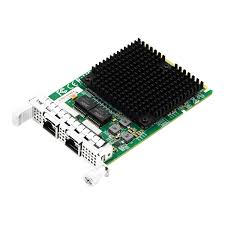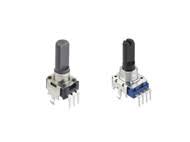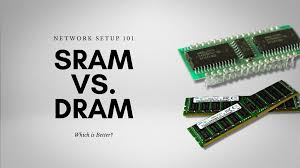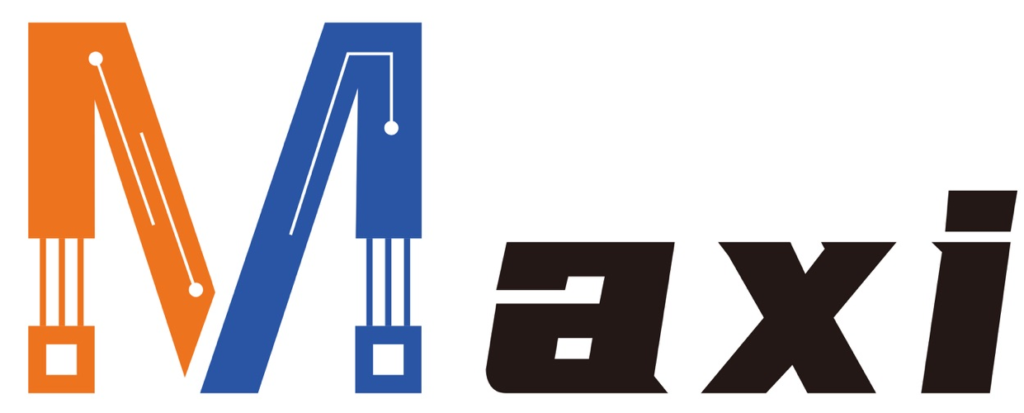In the infrastructure development of modern data centers, hardware interconnection and compatibility are key factors in improving system efficiency and reducing operational costs. With the continuous advancement of technology, more industry standards have emerged, aiming to optimize the compatibility and interoperability between hardware devices. The Open Compute Project (OCP), an open-source hardware initiative, has been driving the standardization and openness of data center hardware. Among its many components, OCP adapters play a crucial role in this process.

1. What Are OCP Adapters?
OCP adapters are hardware interface devices that comply with OCP standards and are designed to ensure compatibility between devices from different vendors and technical platforms. OCP adapters can include network adapters, power adapters, storage adapters, PCIe expansion cards, and more, covering several key areas of data center hardware. By using OCP adapters, enterprises can configure their hardware systems more flexibly, improving performance and scalability while reducing costs and enhancing device manageability.
2. Main Types of OCP Adapters
OCP adapters can be divided into several common types based on their functions and use cases:
1. OCP Network Interface Cards (NICs)
Network adapters are one of the most common types of OCP adapters and are used to connect servers to network infrastructure. Traditional network interface cards (NICs) are often proprietary and dependent on specific vendors, while OCP network adapters follow open standards, enabling seamless integration of devices from different manufacturers. Key features of OCP NICs include:
- High-performance networking: Supporting high-speed network standards like 10GbE, 40GbE, 100GbE, and even higher transmission rates to meet the bandwidth demands of data centers.
- Flexible interface support: OCP NICs support multiple interfaces, including Ethernet, InfiniBand, and others, providing flexible options for various applications.
- Lower power consumption and heat dissipation: OCP NICs are designed to optimize power consumption and heat dissipation, helping to improve overall energy efficiency in data centers.
2. OCP Power Adapters
OCP power adapters provide power conversion or distribution for servers that comply with OCP standards. In traditional data centers, power modules are often designed by individual hardware vendors, leading to compatibility issues between different devices. OCP power adapters standardize power management, ensuring stable power supply to all hardware and simplifying maintenance. Key features include:
- Efficient power conversion: OCP power adapters use advanced power conversion technologies to provide stable voltage and current, reducing energy loss.
- Modular design: This design makes maintenance and upgrades more convenient, as users can replace or upgrade power modules as needed.
- Strong compatibility: These adapters support a variety of OCP-compliant hardware devices, including servers, storage devices, and other network components.
3. OCP Storage Adapters
With the explosion of data, the efficiency and scalability of storage systems have become increasingly important. OCP storage adapters offer a unified interface that supports various storage protocols such as SATA, SAS, and NVMe, optimizing storage performance. Key features include:
- High-speed data transfer: Supporting high-speed storage protocols (e.g., NVMe) to accelerate data access, especially for big data processing and high-performance computing applications.
- High scalability: OCP storage adapters support large-scale storage deployments, catering to growing storage needs.
- Cross-platform compatibility: These adapters support various operating systems and hardware platforms, providing higher compatibility and flexibility.
4. OCP PCIe Adapters
PCIe adapters are used to expand the computational capabilities of servers or to add additional hardware functionalities (e.g., GPUs, network cards). OCP PCIe adapters follow OCP standards, allowing various hardware devices to work together on a single platform. Their key features include:
- Support for various expansion cards: This includes graphic cards, compute cards, network cards, and more, which can be easily added through PCIe slots to expand server capabilities.
- High bandwidth: Supporting high-bandwidth data transfer with PCIe 3.0, 4.0, and even 5.0 versions, ensuring high-performance computing applications.
- Low latency and high efficiency: PCIe adapters optimize data transfer paths to reduce latency and enhance overall computational efficiency.
3. Advantages of OCP Adapters
OCP adapters offer numerous advantages, particularly in modern data center architectures. They provide enterprises with efficient, flexible, and scalable hardware solutions.
1. Reducing TCO (Total Cost of Ownership)
By adopting OCP adapters, enterprises can reduce hardware acquisition costs through standardization and open design. OCP hardware follows a unified standard, making hardware procurement more flexible and reducing reliance on proprietary hardware, thus significantly lowering long-term maintenance and upgrade costs.
2. Improving Hardware Compatibility
OCP adapters ensure seamless collaboration between devices from different vendors and technical platforms. This compatibility allows enterprises to freely choose hardware devices from different suppliers without worrying about interoperability issues.
3. Enhancing Flexibility and Scalability
The needs of data centers often evolve over time. OCP adapters make systems more flexible and scalable, supporting multiple hardware interfaces and protocols. This flexibility allows enterprises to quickly adapt to market changes or technological advancements.
4. Increasing Energy Efficiency and Performance
OCP adapters optimize hardware design to reduce energy waste while improving hardware performance. For energy-sensitive data centers, this is particularly important. Optimized power management and heat dissipation help reduce operational costs.
4. The Future of OCP Adapters
As the OCP standard continues to evolve, the types and applications of OCP adapters are expanding. Looking ahead, OCP adapters are expected to develop in the following areas:
- Support for faster network and storage protocols: With the development of 5G, AI, cloud computing, and other technologies, OCP adapters will support higher network bandwidths, lower storage latency, and meet the demands of emerging applications.
- Broader ecosystem compatibility: In the future, OCP adapters will continue to optimize compatibility with hardware and software platforms, supporting more operating systems and cloud platforms, further enhancing their market competitiveness.
- Intelligent management and automation: With the integration of AI and machine learning, OCP adapters will not only serve as hardware connectivity interfaces but also include intelligent management features, helping data centers achieve automated operations.
5. Conclusion
OCP adapters, as an integral part of the Open Compute Project, have significantly driven the standardization, flexibility, and efficiency of data center hardware. For enterprises looking to optimize hardware configurations, reduce costs, and improve performance, OCP adapters are an ideal choice. With ongoing technological advancements, the application prospects of OCP adapters will continue to expand, further transforming the architecture and management of data center hardware worldwide.




